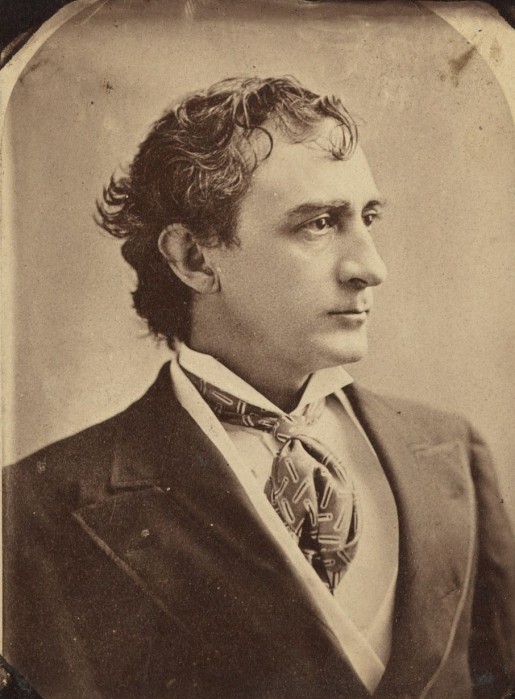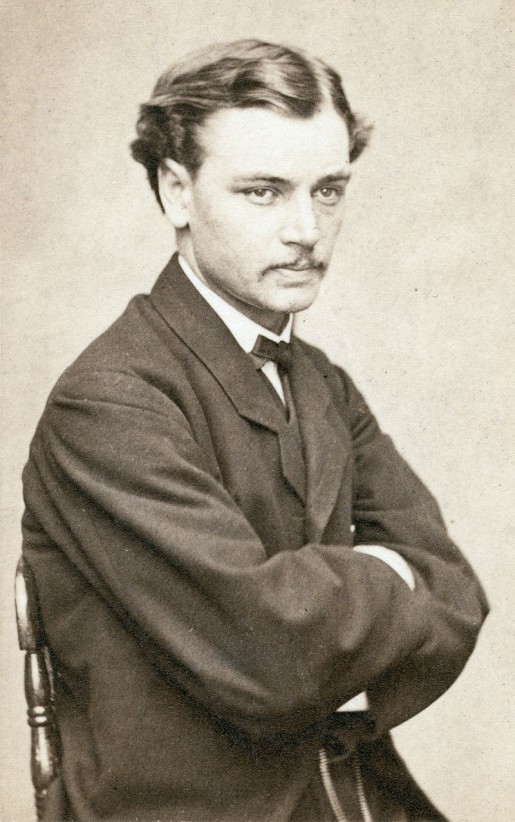Did Edwin Booth Really Save Robert Todd Lincoln’s Life a Year Before Booth’s Brother Assassinated Lincoln’s Father?
Here is the latest in a series of examinations into urban legends about theater and whether they are true or false.
THEATER URBAN LEGEND: Edwin Booth saved Robert Todd Lincoln from being hit by a train.
People often write about the American Civil War as being a war of “brother against brother.” In the case of Edwin and John Wilkes Booth, that was very accurate (well, except for the fact that neither served in the war, but you get my meaning). Both Booths were accomplished theater actors, but Edwin was a Unionist and John was a secessionist. Edwin even voted for Lincoln, a fact that really gnawed at his brother, who insisted to his brother than Lincoln was going to try to become the King of America.
In any event, an interesting legend involving the older Booth brother has become very popular over the years, which is that Edwin actually saved the life of Abraham Lincoln’s oldest son, Robert Todd Lincoln, a year before Booth’s brother assassinated the President.
Is that true?
It definitely IS true that Booth saved Lincoln from injury during an incident at a train station one night in 1964. That much is very clear. What is less clear is whether the story has accurately captured exactly what happened, or whether the story has been pumped up a bit with exaggerations to the point where it is a stretch as to whether it could be accurately stated “Edwin Booth saved Robert Todd Lincoln’s life.”
The best record of the incident happened in 1909, when Lincoln wrote to Richard Watson Gilder, a magazine editor who wanted to know if the story was true, as it had already been written about a number of times in the years up until that point (particularly when Booth died in 1893). Here is what Lincoln said of the incident:
The incident occurred while a group of passengers were late at night purchasing their sleeping car places from the conductor who stood on the station platform at the entrance of the car. The platform was about the height of the car floor, and there was of course a narrow space between the platform and the car body. There was some crowding, and I happened to be pressed by it against the car body while waiting my turn. In this situation the train began to move, and by the motion I was twisted off my feet, and had dropped somewhat, with feet downward, into the open space, and was personally helpless, when my coat collar was vigorously seized and I was quickly pulled up and out to a secure footing on the platform. Upon turning to thank my rescuer I saw it was Edwin Booth, whose face was of course well known to me, and I expressed my gratitude to him, and in doing so, called him by name.
So to be clear, a bunch of people were waiting for a train at the station. It was crowded, so people were pushed up against the train, which is dangerous given the gap between the train and the station platform. The train moved, not to depart, but just as trains sometimes move once they arrive at stations, presumably to better situate itself. The sudden movement made it so that Lincoln fell feet first into the gap between the train and the platform. Booth grabbed him before he could fall much and pulled him back to the platform for safety.
That begs the question then, does that constitute “saving Robert Todd Lincoln’s life”? Lincoln felt that unlikely, noting later in life when asked about the incident (which had ballooned over time to Booth pulling Lincoln out of the path of a moving train) that the train had come to a stop when he fell, so he was only in danger from falling from the platform to the ground. As Lincoln notes, he likely would have been injured, but it was unlikely to be a grave injury.
This isn’t to say that Lincoln was not grateful. He was very grateful, and wrote about the incident often over the years. Booth, similarly, also told people about it a lot, as it was sort of his saving grace, that he had saved the son of the man his brother had murdered (Booth did not know who it was he had saved at first, but only found out about it later on).
I freely admit that it seems a bit petty to qualify the event, but at the same time, isn’t it also sort of petty to change what happens to suit an easier narrative? “Booth saves Lincoln’s life” is a much better hook with what happened with Booth’s brother and Lincoln’s father, so that is what got reported over the years (in increasingly dramatic retellings). So I don’t think it is unfair to note that the most famous version of the story is false in a key part of the story.
So let us leave it at that. The legend is…
STATUS: False in a key aspect of the story, but mostly True
Thanks to Jason Emerson’s astonishing write-up of the incident at History.Net for the great quotes!
Feel free (heck, I implore you!) to write in with your suggestions for future urban legends columns! My e-mail address is bcronin@legendsrevealed.com







